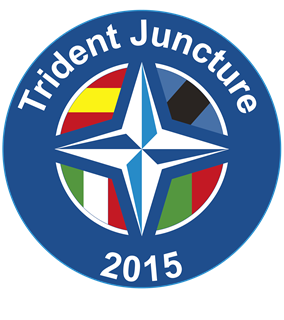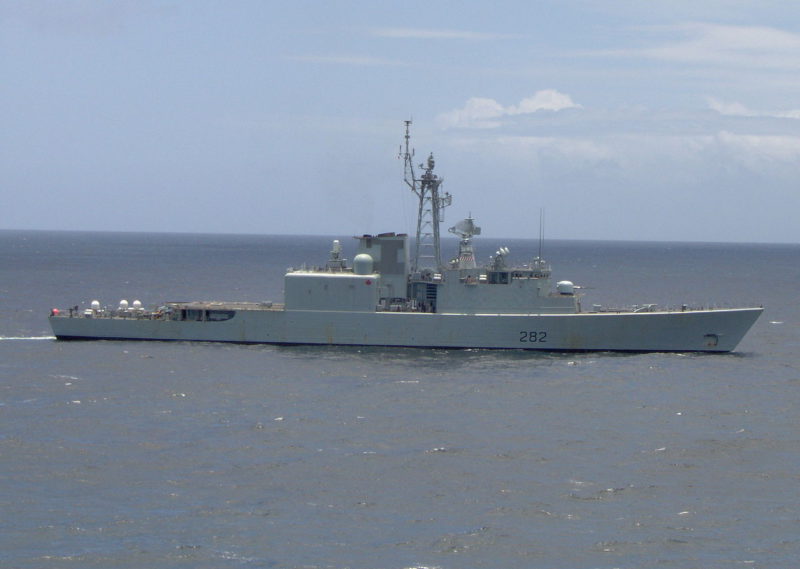From September 28 to November 6, 2015 NATO allies and partners will conduct its largest military exercise since 2002. Operation Trident Juncture will mobilize some 36,000 soldiers, sailors, and airmen, along with 200 aircraft and 50 warships, from over 30 countries. The military industries of 15 countries will also participate to assess what other weapons and technology NATO needs in the future. International organizations such as the African Union and European Union will also participate, along with NGO’s like the Red Cross. International observers including those from Russia will also be invited to attend.
Planning for Trident Juncture began two years ago with the intention of transitioning NATO from its counterinsurgency focused operations seen in Afghanistan to a broader based spectrum of operations. NATO has since tweaked its plans with the emergence of global events such as the Russian takeover of Crimea and subsequent aggression in Eastern Ukraine, as well as the spread of the Islamic State in the Middle East and North Africa.
The theme of Operation Trident Juncture is speed, the speed with which NATO forces can respond to a crisis. German General Hans-Lothar Domrose who will lead the exercise said that “speed matters- you will see it in the air, at sea, and on land.” The overall intention of the exercise will be for NATO to test the speed and ability of its newly upgraded 30,000 strong Rapid Response Force, and 5,000 strong Spearhead Force, which are designed react to a rapidly evolving crisis.
After a decade of NATO-led combat operations in Afghanistan, the alliance is now shifting its focus to defending its own territories which are being threatened by Russian actions in Eastern Europe, and by the ever expanding Islamic State. British Lt. Gen. Phil Jones stated that for NATO “the challenge is to make sure we as a military, we’re never fighting the last war, whether the last war was ten years ago or ten minutes ago.” Thus Trident Juncture will host a complex artificial threat scenario, with threats ranging from terrorism to propaganda, and force-on-force fighting.
Canada recently stated that it will contribute more than 1,600 personnel to the exercise. The Canadian Forces will include up to five Royal Canadian Navy vessels, including a submarine, approximately 650 Canadian Army personnel, two C-130J Hercules aircraft, and potentially one refueling aircraft, a Special Operations component; and the command of a multi-national brigade by five Canadian Mechanized Brigade Group Headquarters.
 Camp Lemonier, Djibouti (Jan. 30, 2003) Ð Two U.S. Marine Corps CH-53E Super Stallion helicopters assigned to Marine Heavy Helicopter Squadron-772 (HMM-772) receive fuel from a KC-130 Hercules while each transport High Mobility Multipurpose Wheeled Vehicles (HMMWV) over the Gulf of Aden. The reserve squadron based at Willow Grove, Pa., is currently attached to the 24th Marine Expeditionary Unit Special Operations Capable (SOC), supporting mission in support of the war against terrorism. U.S. Marine Corps photo by Cpl. Paula M. Fitzgerald. (RELEASED)[/caption]
Camp Lemonier, Djibouti (Jan. 30, 2003) Ð Two U.S. Marine Corps CH-53E Super Stallion helicopters assigned to Marine Heavy Helicopter Squadron-772 (HMM-772) receive fuel from a KC-130 Hercules while each transport High Mobility Multipurpose Wheeled Vehicles (HMMWV) over the Gulf of Aden. The reserve squadron based at Willow Grove, Pa., is currently attached to the 24th Marine Expeditionary Unit Special Operations Capable (SOC), supporting mission in support of the war against terrorism. U.S. Marine Corps photo by Cpl. Paula M. Fitzgerald. (RELEASED)[/caption]
This will be Canada’s largest troop deployment to Europe since 2000 when it deployed around 3,300 CAF personnel to support peacekeeping forces in Kosovo and Macedonia, as well as the NATO mission in Bosnia-Herzegovina. Overall Trident Juncture will be the largest NATO exercise since 2002 when some 40,000 troops from 15 members and 12 partner nations tested their capabilities in Norway.
Considering the recent developments in the conflict in Ukraine, and in the Middle East and North Africa with the Islamic State, Operation Trident Juncture will be an excellent opportunity for the alliance to not only test its interoperability between members, but also show the world that NATO is as strong, united and cohesive as ever before.
The number of countries who signed up for the exercise, including non member partners such as Sweden and Austria shows not only that the NATO alliance is as strong as ever, but that many countries recognize that the best way to deal with modern day threats such as IS and Russia is through a united front in which all allies and partners contribute.





